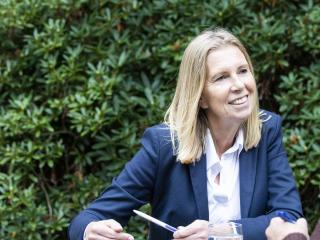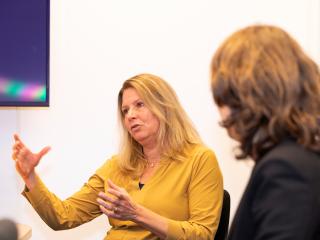“You don’t practice science on your own”
Public Law and Governance (PLG) is the largest Department of Tilburg Law School in which team science is one of the strategic principles of research policy. In this Department, researchers from as many as ten disciplines collaborate and team science is a matter of course. Head of Department Professor Nicola Jägers: “You need others, it’s as simple as that.”
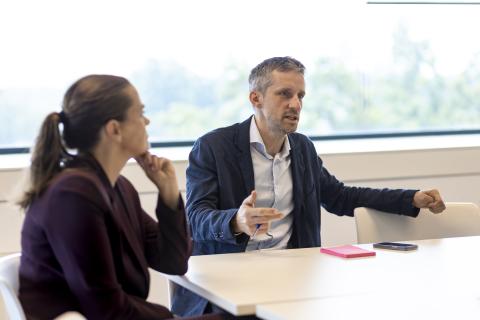
Together with Associate Professor and program manager Merlijn van Hulst, Nicola joins us to bring us up to date on team science. The basic principle may be quite simple, but defining it proves to be difficult. Merlijn: “Team science is not a room with a sign on the door in which we work exclusively on this subject. It is a culture change that comes in many shapes and sizes.
If truth be told, we may be practicing a lot more team science than we may think, because you don’t practice science on your own. It is researchers introducing their colleagues to their network. It is the research that builds on the results and findings of others.”
Facilitating and stimulating
Nicola adds: ”Stimulating team science requires trust, because there is no straight line with a measurable result and a previously agreed schedule. But in our School’s strategic plan, that multidisciplinarity and collaboration are explicitly mentioned. And society demands it, too. Therefore, we as supervisors chiefly facilitate and stimulate, both within teams and outside the Department, as well as beyond the university.”
Only through cooperation across disciplines can such big issues be studied
“Big issues can only be solved by adopting a broad approach. A case in point is ‘Constitutionalizing in the Anthropocene’. This project focuses on one of the most urgent challenges of our time: catastrophic human-induced environmental degradation and climate change. This age, the Anthropocene, defies existing administrative and legal frameworks and turns them upside down. Within this project, many researchers from different disciplines work together, including public administration, environmental law, philosophy of law, and European and international law. They study the role of law and governance in this age. Such big issues can only by studied by means of partnerships across disciplines.”
Practical approach with financial incentives
Back to facilitating and stimulating. How does Nicola’s Department do so? “We have adopted a practical approach,” she explains. “We actively bring people together and see how we can make connections. We do so particularly in the context of the Global Law and Governance Signature Plan in which we as a Department have the lead. Within this Signature Plan, researchers are encouraged to contribute from their own expertise to joint research themes and to be inspired at the same time by the work of their colleagues and to make new connections.
The old incentives mainly rewarded individual achievement. It is good to see that the Tilburg Law School Board is committed to making different choices to help redeem the promise of Recognition & Rewards.
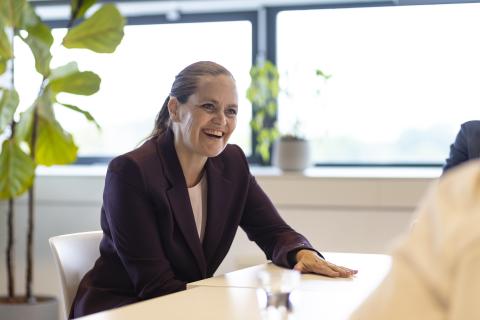
If we have meetings, we therefore ask colleagues to invite speakers who appeal to a broad group of experts. And financial resources are available for multidisciplinary plans.” In addition, Nicola thinks it is important that Tilburg Law School and the university explore incentives that can help them accelerate the cultural change. Tilburg Law School has already taken important steps. For instance, researchers are no longer ‘judged’ by the number of publications based on a scoring system, and the incentive policy has been extended to support new research initiatives and collaboration within the Signature Plans. “The old incentives mainly rewarded individual achievement. It is good to see that the Tilburg Law School Board is committed to making different choices to help redeem the promise of Recognition & Rewards.”
We have made an overview of Frequently Asked Questions.
- Read more about the concerns that exist.
- And how we are dealing with them here at Tilburg University.
- The information is regularly updated and updated.
Appealing practical examples
One fine example of an interdisciplinary research project that deploys team science is CONTRA. Merlijn: “This sizeable project is about conflicts in urban transformations linked to climate change, an important social issue. It unites law and public governance and we also make use of art. The project partners consist of cities, universities, theater makers, and national organizations. We are conducting pioneering work as part of this study based on a new model: Living Labs (‘Drama Labs’), a theater method that helps us experiment with productive conflict.”
Another fine project is BOLSTER, in which the impact of the European Green Deal on marginalized groups is studied. Nicola: ‘Twelve research partners are involved and 23 project partners from around the European Union, including knowledge institutions, authorities, NGOs, and partners from the business sector. We work on a big social issue from various perspectives.”
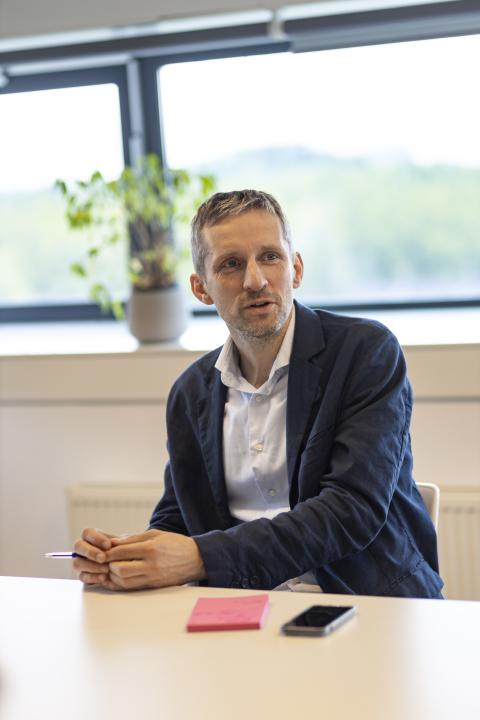
Team science means that it does not need to be the most senior researcher who’s in charge.
Importance of a support team, junior workers in charge
Both projects, BOLSTER as well as CONTRA, are led by junior researchers. “That was a conscious choice,” Merlijn says. “Team science means that it does not need to be the most senior researcher who’s in charge. A large project is also an opportunity for junior colleagues to grow in or towards a new role. The senior researchers are closely involved in the projects as advisors.” Nicola: “Of course, in these types of innovative, large-scale projects, we pay close attention to a balanced distribution of knowledge and experience. Thus, the team is supported by a large group of people involved from different roles.”
Opting for culture change
Nicola firmly supports the course chosen by her Department and School. “At TLS, we consciously chose this culture change. It is a well-considered step and not an “anything goes” approach. We are convinced that this way of working has added value for researchers, the university, and society at large. That is why we have given scope for this new method to develop within our Department. We are still exploring how we can sustainably integrate this theme in P&TD interviews without creating a new rigid system.”
Support
Nicola feels the support from Tilburg Law School and the university. “We’re not an island, we cannot single-handedly change the course of the entire university. It will take more than that. It is a positive thing that Recognition & Rewards has generated a greater focus on the added value of collaboration. I look forward eagerly to the implementation of all the plans.”
More on Recognition & Rewards?
Read more on Recognition and Rewards? On our website, you can find the background and answer frequently asked questions.

